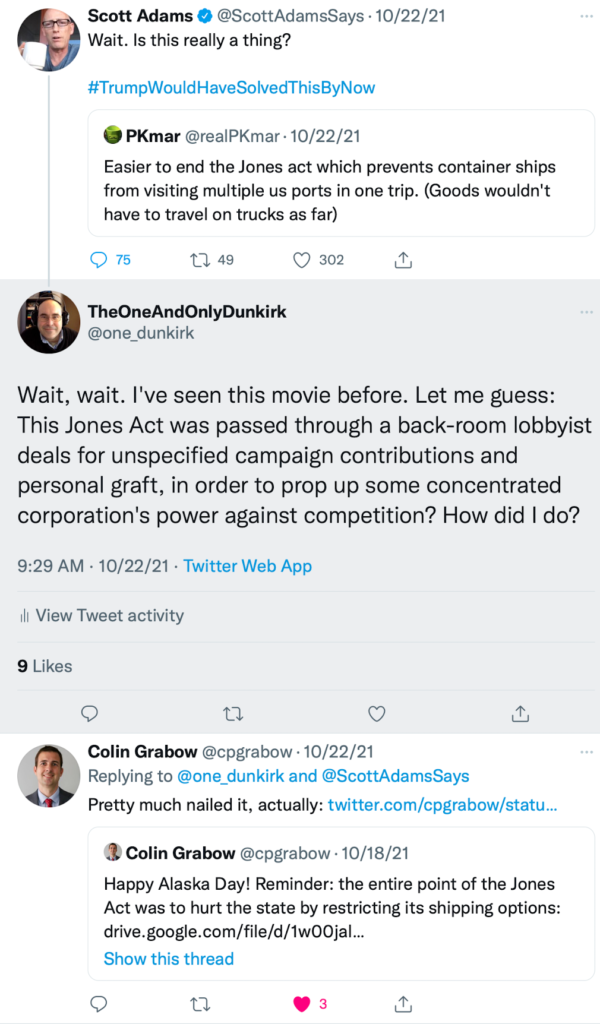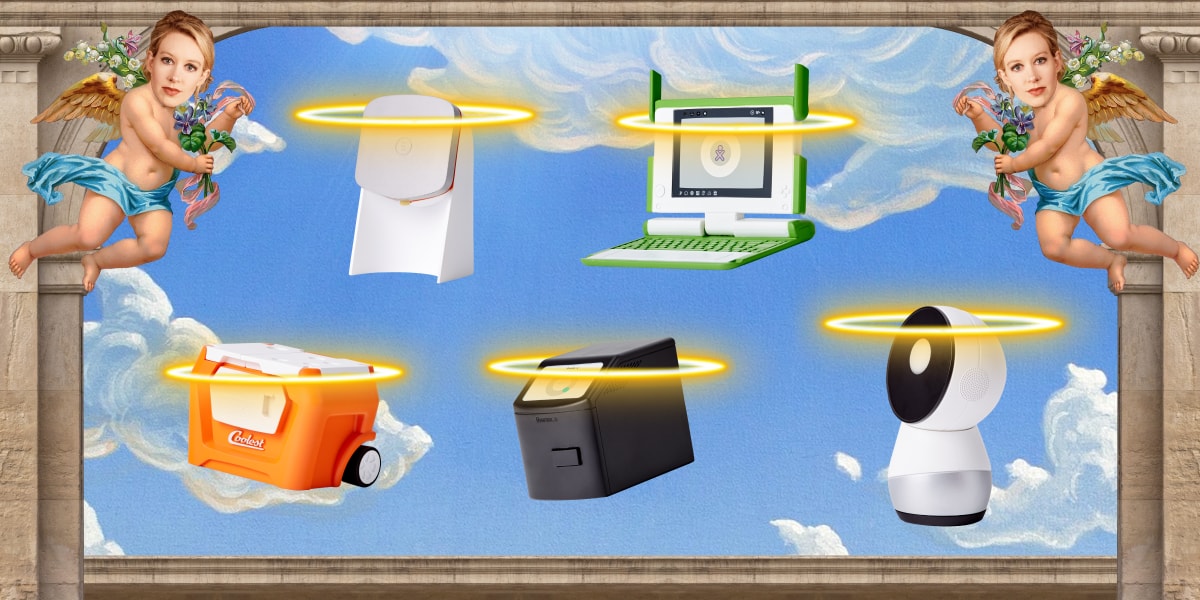I have a simple question for every ‘expert’ who thinks they understand the root causes of the shipping crisis:
Why is there only one crane for every 50–100 trucks at every port in America?
No ‘expert’ will answer this question.
I’m a Class A truck driver with experience in nearly every aspect of freight. My experience in the trucking industry of 20 years tells me that nothing is going to change in the shipping industry.
Source: I’m A Twenty Year Truck Driver, I Will Tell You Why America’s “Shipping Crisis” Will Not End
This is the other half of the port problem itself.

Both of these stories talk all around the issue, but if you read between the lines, you can see the root problem, which I’ve been trying to explain for awhile now.
It is the business plan of every VC-funded startup today to buy their way into a market, use their funding to underprice everyone else out of it, come to monopolize it, and then extract all the profit from it going forward. (Or dualopolize, and collude with another heavy weight. Looking at you Verizon and AT&T.) Everyone else has learned the new playbook, and the US is experiencing runaway consolidation and monopolization in every market sector.
You can see the after-effects of this approach right now in New York. Uber has “won,” and the cab business is now in the toilet. The incumbent hegemony has been overthrown, and medallions (cab “licenses”) are now worth 1/5th what they were a couple years ago. Naturally, the state is proposing relief for cab companies, but it doesn’t give much relief to individual owners, and many of them are on hunger strike for more help.
We say that the United States has a capitalist economic system, but every business since the Reagan 80’s has concentrated its efforts to accrete as much power as possible, and use it to bully current competitors, and prevent new entrants into the market. This has resulted in our current situation where 2 or 3 companies control virtually everything about any particular market you can point to. The classic examples are food and entertainment/news. And when any large-enough business gets in trouble, the government is Johnny-on-the-spot to come rushing in with a bailout. So much for taking risks being the operative balance to getting to enjoy the profits.
The excess capacity of every link of every supply chain in the country has been liquidated for short-term profit over the past decade, and then COVID happened. And, very naturally, as predicted perfectly by the corporate model, the companies which have their respective leash on the various parts of this problem are yanking on them, to try to extract more profit from “the market.” Except that we, the average citizen, are “the market” here, and that’s why we’re seeing people start talking about inflation. It’s coming, and it’s inevitable, because the US has “free market capitalism” in name only now. Between the bailouts, and with as much involvement as Congress has “regulating” every market and industry now, it’s hard not to call our system a planned economy, which, of course, is the classic euphemism for Communism.



